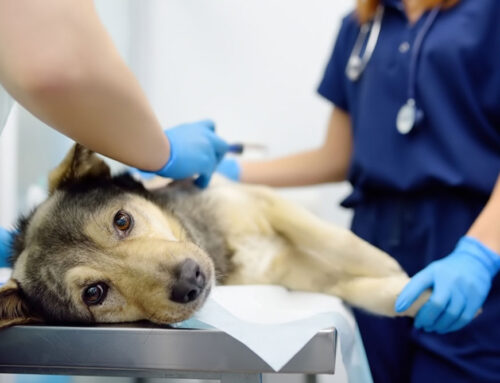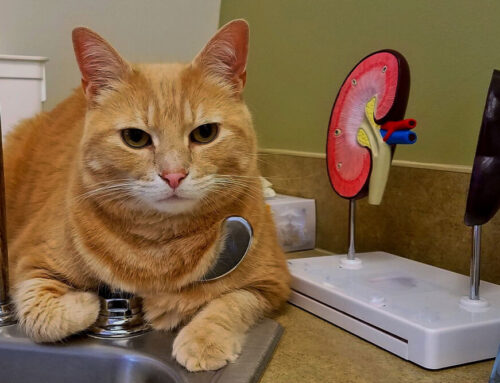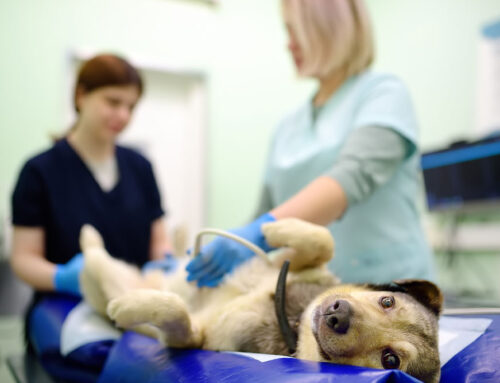How Does a Pet’s Breed Influence Their Health?
Whether it’s a Labrador with chronic ear infections, a Maine Coon with heart disease, or a bulldog with breathing trouble, genetics play a major role in a pet’s lifelong health. Owners often wonder if these problems are inevitable or preventable- and the truth lies somewhere in between.
With advanced imaging and diagnostics, veterinarians can catch breed-specific issues early and provide tailored treatments to keep genetic predispositions from becoming guarantees.
At Southern Crossing Animal Hospital in Memphis, TN, our team offers concierge-level, Fear Free care, providing pets with personalized solutions for their unique needs.
Understanding Breed-Related Health Issues
When you chose your pet, you likely fell in love with their unique personality and appearance. What you may not have realized is that the same genetic factors influencing those traits also affect their long-term health. Understanding these predispositions empowers you to provide better preventive care and catch problems early.
The Importance of Breed in Pet Health
Genetic predispositions occur when certain breeds carry genes that make specific health conditions more likely.
For example, Brachycephalic Obstructive Airway Syndrome (BOAS) affects flat-faced breeds such as bulldogs, pugs, and French bulldogs. Their shortened airways give them their signature look but also restrict airflow, causing snoring, exercise intolerance, and, in severe cases, respiratory crises.
Large-breed dogs face different challenges. German Shepherds, Golden Retrievers, and Labradors commonly develop hip dysplasia, where malformed hip joints lead to arthritis and chronic pain. Long-bodied breeds like Dachshunds and Corgis are prone to Intervertebral Disc Disease (IVDD), a spinal condition that can cause sudden weakness or paralysis.
Cat breeds have their own genetic vulnerabilities. Persian cats are at risk of Polycystic Kidney Disease (PKD), while Maine Coons may inherit hypertrophic cardiomyopathy, a form of heart disease that can progress silently until it becomes life-threatening.
Utilizing Diagnostic Tools for Early Detection
Early detection turns breed-related conditions from inevitable problems into manageable ones.
Advanced imaging such as ultrasound and echocardiography lets veterinarians evaluate organs and detect subtle abnormalities before symptoms arise. An echocardiogram, for example, can reveal early heart disease in a Maine Coon or Cavalier King Charles Spaniel before outward signs appear.
Laboratory screening is equally important. Routine bloodwork monitors kidney, liver, and thyroid function- all critical for detecting breed-specific diseases in their early stages, when treatment is most effective.
Genetic Testing: Knowledge for Prevention
Knowing a pet’s genetic background can be transformative in managing and preventing disease. Modern DNA screening identifies inherited traits, carrier status, and potential health risks long before symptoms appear.
Comprehensive DNA testing through services like Wisdom Panel, Embark, and Basepaws provides valuable information about breed composition and genetic markers for diseases such as heart conditions, orthopedic disorders, and metabolic syndromes.
For new owners, testing early enables targeted wellness plans and dietary or lifestyle adjustments that reduce risk. It also helps breeders make ethical decisions that promote long-term breed health.
Common Breed-Related Health Problems
Knowing your pet’s genetic risks helps you and your veterinarian plan for prevention, management, and early treatment. Below are some of the most common breed-related conditions seen in veterinary medicine.
Brachycephalic Breeds and Breathing Challenges
Flat-faced breeds capture hearts with their expressive eyes and lovable snorts, but those same traits make breathing harder. BOAS affects multiple airway structures, including the nostrils, soft palate, and trachea, making it difficult for these dogs to cool themselves and breathe efficiently.
Signs of BOAS include:
- Loud snoring or wheezing
- Gagging or coughing after excitement
- Difficulty during exercise
- Collapse or heat intolerance
Because heat and humidity worsen symptoms, these breeds require extra care during warm weather. Many also experience birthing difficulties due to body structure, and cesarean sections are often necessary to protect both the mother and pups.
Orthopedic Concerns in Large Breeds
Large dogs are prone to skeletal and joint problems that affect mobility. Hip dysplasia, elbow dysplasia, and arthritis all develop slowly but cause lifelong pain without intervention.
Wobbler Syndrome affects the cervical spine, particularly in Dobermans and Great Danes, causing instability and weakness.
Degenerative myelopathy– a progressive spinal cord condition- can affect German Shepherds, Boxers, and Corgis, leading to gradual paralysis.
Though these diseases are not curable, early diagnosis and supportive therapies such as weight management, physical therapy, and mobility aids can greatly extend comfort and independence.
Heart Diseases in Dogs and Cats
Heart disease affects many breeds and can progress silently without screening. Recognizing genetic tendencies and performing early diagnostic imaging saves lives.
- Cats: Hypertrophic cardiomyopathy (HCM) is the most common feline heart condition, especially in breeds like Maine Coons and Ragdolls. Thickened heart muscle walls reduce pumping efficiency and can cause fluid buildup, blood clots, or sudden collapse.
- Large-breed dogs: Canine dilated cardiomyopathy (DCM) affects breeds such as Dobermans, Boxers, and Great Danes. The heart’s chambers enlarge and weaken, resulting in fatigue, coughing, and fainting.
- Small-breed dogs: Mitral valve disease (MVD) is common in aging toy breeds like Cavalier King Charles Spaniels and Chihuahuas. It causes blood to leak backward through the heart valve, leading to a chronic murmur and eventual heart failure if untreated.
- Arrhythmias: Abnormal heart rhythms can affect any breed but are more frequent in Boxers and Dobermans. Canine arrhythmias range from benign irregularities to life-threatening electrical disturbances requiring lifelong monitoring.
Early detection through cardiac auscultation and echocardiography allows for medical management that slows disease progression and improves quality of life.
Dental and Oral Health Issues
Small dogs often have full-sized teeth in small jaws, leading to crowding and plaque accumulation. Without consistent dental care, toy breeds like Yorkshire Terriers and Chihuahuas commonly develop periodontal disease by middle age.
Siamese cats are genetically predisposed to gum inflammation and resorptive lesions. Regular home care and professional dental cleanings prevent infections, tooth loss, and systemic complications.
Pet Insurance: Planning for the Possibilities
Even with preventive care, some inherited conditions will appear over time. Investing in insurance early- before any diagnosis- ensures coverage for future health concerns. High-risk breeds like Great Danes, Bulldogs, and Ragdolls often face higher lifetime veterinary costs.
Understanding pet insurance options can help you choose a policy that provides the right protection. Coverage for hereditary and chronic conditions offers peace of mind and financial security if a major issue arises.

Managing and Preventing Breed-Related Health Issues at Southern Crossing
Prevention remains the most powerful tool in protecting your pet’s health. Routine wellness visits allow veterinarians to catch subtle changes before they become serious.
Managing genetic health issues requires partnership between pet owners and their veterinary team. Our concierge-level care ensures your veterinarian knows your pet’s unique risks and lifestyle, allowing for truly personalized care.
Our Fear Free certification helps reduce anxiety for pets needing frequent exams or treatments, improving diagnostic accuracy and comfort. And when breed-related issues become emergencies, our team provides immediate urgent care and stabilization during business hours.
Taking Action for Your Pet’s Breed-Specific Health Needs
Your pet’s breed can influence their future, but proactive care helps shape the outcome. Whether it’s early heart screening for a Cavalier King Charles Spaniel or genetic testing for a Maine Coon kitten, knowledge and prevention are your strongest tools.
At Southern Crossing Animal Hospital, we combine advanced diagnostics with compassionate expertise to help pets of every breed live longer, healthier lives.
Call us at (901) 452-3171 or schedule your pet’s breed-specific wellness exam today.








Leave A Comment